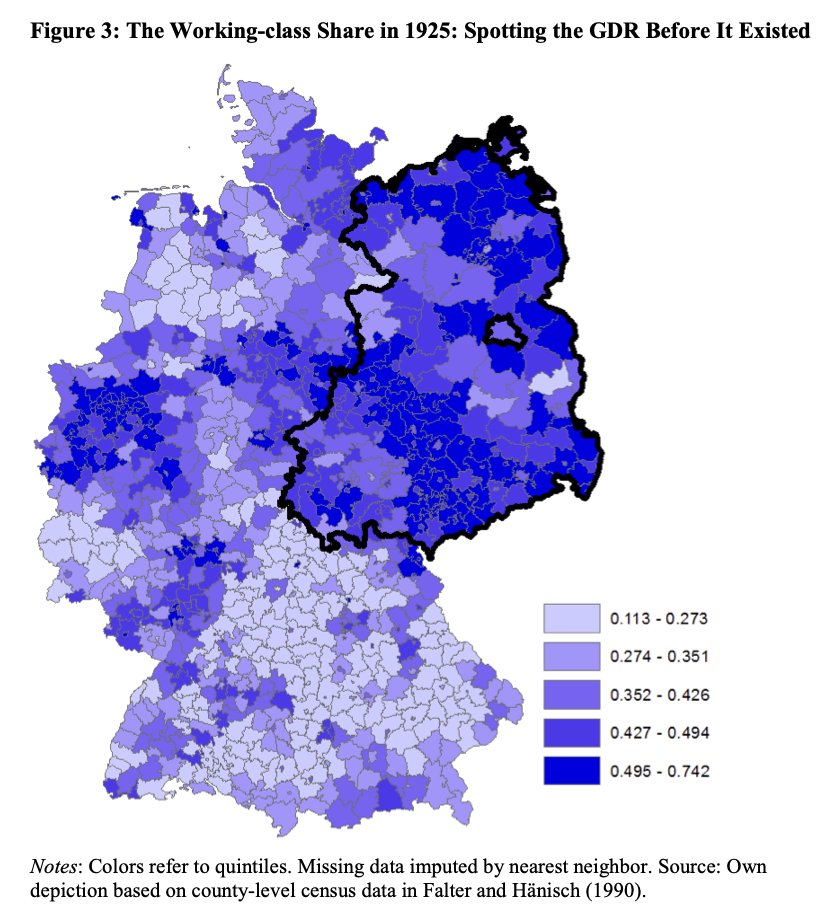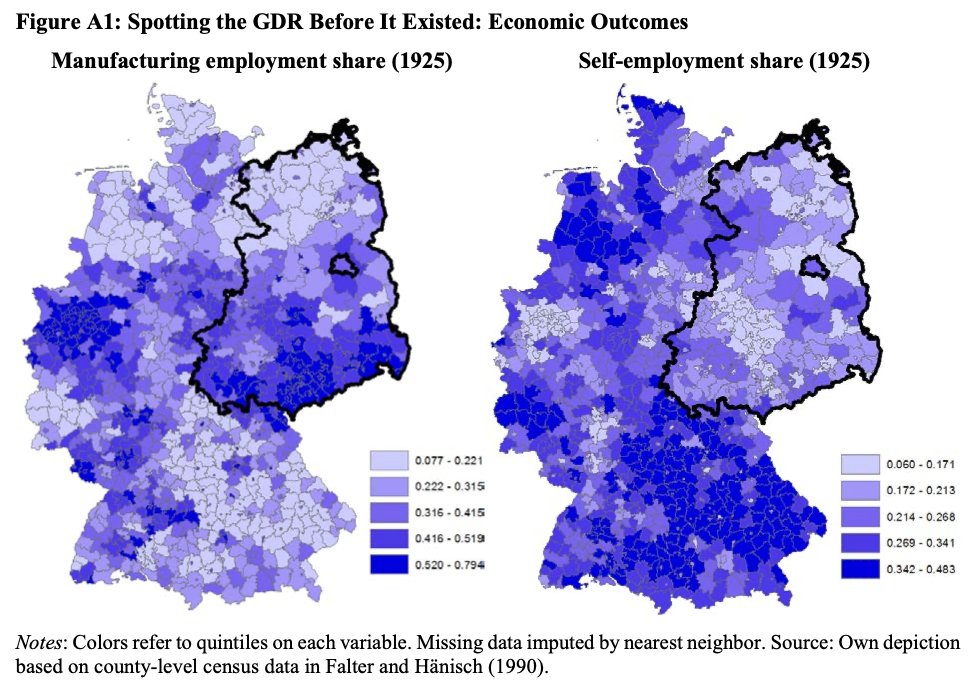Here are some of my favourite paper >titles< (thread).
Might add more in the future.
1/10
The Pope and the Price of Fish
Frederick W. Bell
The American Economic Review
Vol. 58, No. 5 (Dec., 1968), pp. 1346-1350
jstor.org/stable/1814033
Might add more in the future.
1/10
The Pope and the Price of Fish
Frederick W. Bell
The American Economic Review
Vol. 58, No. 5 (Dec., 1968), pp. 1346-1350
jstor.org/stable/1814033
2/10
De Gustibus Non Est Disputandum
George J. Stigler and Gary S. Becker
The American Economic Review
Vol. 67, No. 2 (Mar., 1977), pp. 76-90
jstor.org/stable/1807222
De Gustibus Non Est Disputandum
George J. Stigler and Gary S. Becker
The American Economic Review
Vol. 67, No. 2 (Mar., 1977), pp. 76-90
jstor.org/stable/1807222
3/10
Stars War in French Gastronomy
Olivier Gergaud, Valérie Smeets and Frédéric Warzynski
pure.au.dk/ws/files/10122…
Stars War in French Gastronomy
Olivier Gergaud, Valérie Smeets and Frédéric Warzynski
pure.au.dk/ws/files/10122…
4/10
Star Wars: The Empirics Strike Back
Abel Brodeur, Mathias Lé, Marc Sangnier, Yanos Zylberberg
American Economic Journal: Applied Economics
vol. 8, no. 1, January 2016, pp. 1-32
aeaweb.org/articles?id=10…
Star Wars: The Empirics Strike Back
Abel Brodeur, Mathias Lé, Marc Sangnier, Yanos Zylberberg
American Economic Journal: Applied Economics
vol. 8, no. 1, January 2016, pp. 1-32
aeaweb.org/articles?id=10…
5/10
And in the Evening She's a Singer with the Band - Second Job, Plight or Pleasure?
Rene Böheim, Mark Taylor, 2004
IZA Discussion Paper No. 1081, ftp://ftp.iza.org/dps/dp1081.pdf
@rboheim
And in the Evening She's a Singer with the Band - Second Job, Plight or Pleasure?
Rene Böheim, Mark Taylor, 2004
IZA Discussion Paper No. 1081, ftp://ftp.iza.org/dps/dp1081.pdf
@rboheim
6/10 I do like short titles. Here are some in Economics, from longer to shorter:
Veiling
Jean-Paul Carvalho
The Quarterly Journal of Economics, Volume 128, Issue 1, 1 February 2013, Pages 337–370,
doi.org/10.1093/qje/qj…
Veiling
Jean-Paul Carvalho
The Quarterly Journal of Economics, Volume 128, Issue 1, 1 February 2013, Pages 337–370,
doi.org/10.1093/qje/qj…
7/10
Gender
Muriel Niederle
Handbook of Experimental Economics, second edition, Eds. John Kagel and Alvin E. Roth, Princeton University Press, 2016, pp 481-553.
press.princeton.edu/titles/10874.h…
Gender
Muriel Niederle
Handbook of Experimental Economics, second edition, Eds. John Kagel and Alvin E. Roth, Princeton University Press, 2016, pp 481-553.
press.princeton.edu/titles/10874.h…
8/10
Shocks
John H.Cochrane
Carnegie-Rochester Conference Series on Public Policy
Volume 41, December 1994, Pages 295-364
doi.org/10.1016/0167-2…
Shocks
John H.Cochrane
Carnegie-Rochester Conference Series on Public Policy
Volume 41, December 1994, Pages 295-364
doi.org/10.1016/0167-2…
9/10
Dams
Esther Duflo and Rohini Pande
The Quarterly Journal of Economics, Volume 122, Issue 2, 1 May 2007, Pages 601–646,
doi.org/10.1162/qjec.1…
Dams
Esther Duflo and Rohini Pande
The Quarterly Journal of Economics, Volume 122, Issue 2, 1 May 2007, Pages 601–646,
doi.org/10.1162/qjec.1…
10/10
q^5
Kewei Hou, Haitao Mo, Chen Xue, Lu Zhang
NBER Working Paper No. 24709
nber.org/papers/w24709
q^5
Kewei Hou, Haitao Mo, Chen Xue, Lu Zhang
NBER Working Paper No. 24709
nber.org/papers/w24709
11/10: I nearly forgot:
Saints Marching In, 1590–2012
Robert J. Barro & Rachel M. McCleary
All qualities of a good title!
onlinelibrary.wiley.com/doi/abs/10.111…
Saints Marching In, 1590–2012
Robert J. Barro & Rachel M. McCleary
All qualities of a good title!
onlinelibrary.wiley.com/doi/abs/10.111…
12/N: New addition of a great and crisp title, from this week's NBER WP series:
"I Don't Know": nber.org/papers/w24994
"I Don't Know": nber.org/papers/w24994
13/N: "It's Raining Men! Hallelujah? The Long-Run Consequences of Male-Biased Sex Ratios"
doi.org/10.1093/restud…
doi.org/10.1093/restud…
• • •
Missing some Tweet in this thread? You can try to
force a refresh




















